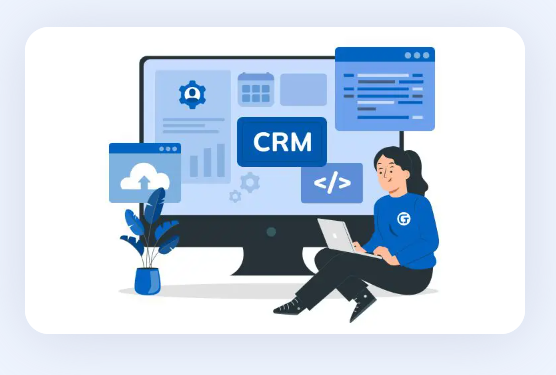The real estate industry is no stranger to change. Over the years, it has embraced technological advancements that have transformed the way properties are bought, sold, and managed. One of the most significant technological innovations in recent years is the development of Customer Relationship Management (CRM) software tailored specifically for real estate professionals. This article will delve into how CRM software is revolutionizing the real estate sector by streamlining property management, improving communication, and enhancing customer relationships.
The Need for CRM in Real Estate
Managing real estate is a multifaceted task. Real estate agents, property managers, and brokers juggle numerous properties, clients, and transactions simultaneously. Without a centralized system to organize data and streamline operations, this can quickly become overwhelming.
This is where CRM software steps in. Real estate CRM software is designed to be a one-stop solution for managing property listings, tracking leads, nurturing client relationships, and simplifying communication. Its adoption has become a game-changer for professionals in the industry.
Key Features of Real Estate CRM Software
1. Property Management
Real estate CRM software allows professionals to efficiently manage property listings. It enables easy creation of detailed property profiles with photos, videos, and descriptions. This information can be quickly shared with potential buyers or renters, reducing the time a property spends on the market.
2. Lead Management
Managing leads is crucial in real estate. CRM software helps automate lead generation and capture. It tracks leads from various sources, such as websites, social media, and referrals, and assigns them to the appropriate agent or team member. This ensures that no potential opportunity slips through the cracks.
3. Communication Tools
Effective communication is the backbone of the real estate business. CRM software provides tools for email automation, scheduling appointments, sending reminders, and even integrating with messaging platforms. This keeps clients and team members in the loop and ensures timely follow-ups.
4. Customer Relationship Building
CRM software doesn't just help manage properties; it also assists in building and nurturing client relationships. It tracks interactions, stores client preferences, and reminds agents of important milestones, such as birthdays or anniversaries. This personal touch goes a long way in retaining clients and generating referrals.
5. Analytics and Reporting
Data is power in real estate. CRM software offers robust analytics and reporting capabilities. It provides insights into lead conversion rates, property performance, and agent productivity. This data-driven approach helps in making informed decisions and optimizing strategies.
The Impact on Real Estate Professionals
The adoption of CRM software has had a profound impact on real estate professionals:
1. Increased Efficiency
Tasks that once consumed significant time and effort, such as manual data entry or lead tracking, are now automated. This frees up agents and property managers to focus on what they do best – serving their clients.
2. Improved Customer Service
With all client information at their fingertips, agents can provide more personalized and timely service. This enhances customer satisfaction and loyalty.
3. Better Marketing
CRM software enables targeted marketing campaigns. Agents can segment their audience based on various criteria, such as location or budget, and tailor marketing messages accordingly.
4. Enhanced Collaboration
Team collaboration is seamless with CRM software. Multiple team members can access and update information, ensuring everyone is on the same page.
Future Trends in Real Estate CRM Software
As technology continues to evolve, so does real estate CRM software. Some emerging trends to watch out for include:
-
AI and Predictive Analytics: CRM software is increasingly integrating AI to provide predictive insights. This can help agents identify potential leads and trends in the market.
-
Mobile Accessibility: Mobile apps are becoming more sophisticated, allowing agents to access CRM data on the go, further increasing productivity.
-
Blockchain Integration: Blockchain technology is being explored for secure, transparent property transactions.
In conclusion, real estate CRM software development is reshaping the industry by streamlining property management, improving communication, and enhancing customer relationships. Its adoption is no longer a luxury but a necessity for real estate professionals looking to stay competitive in a rapidly evolving landscape. As technology continues to advance, the future of CRM software in real estate looks promising, promising even greater efficiency, effectiveness, and innovation.
